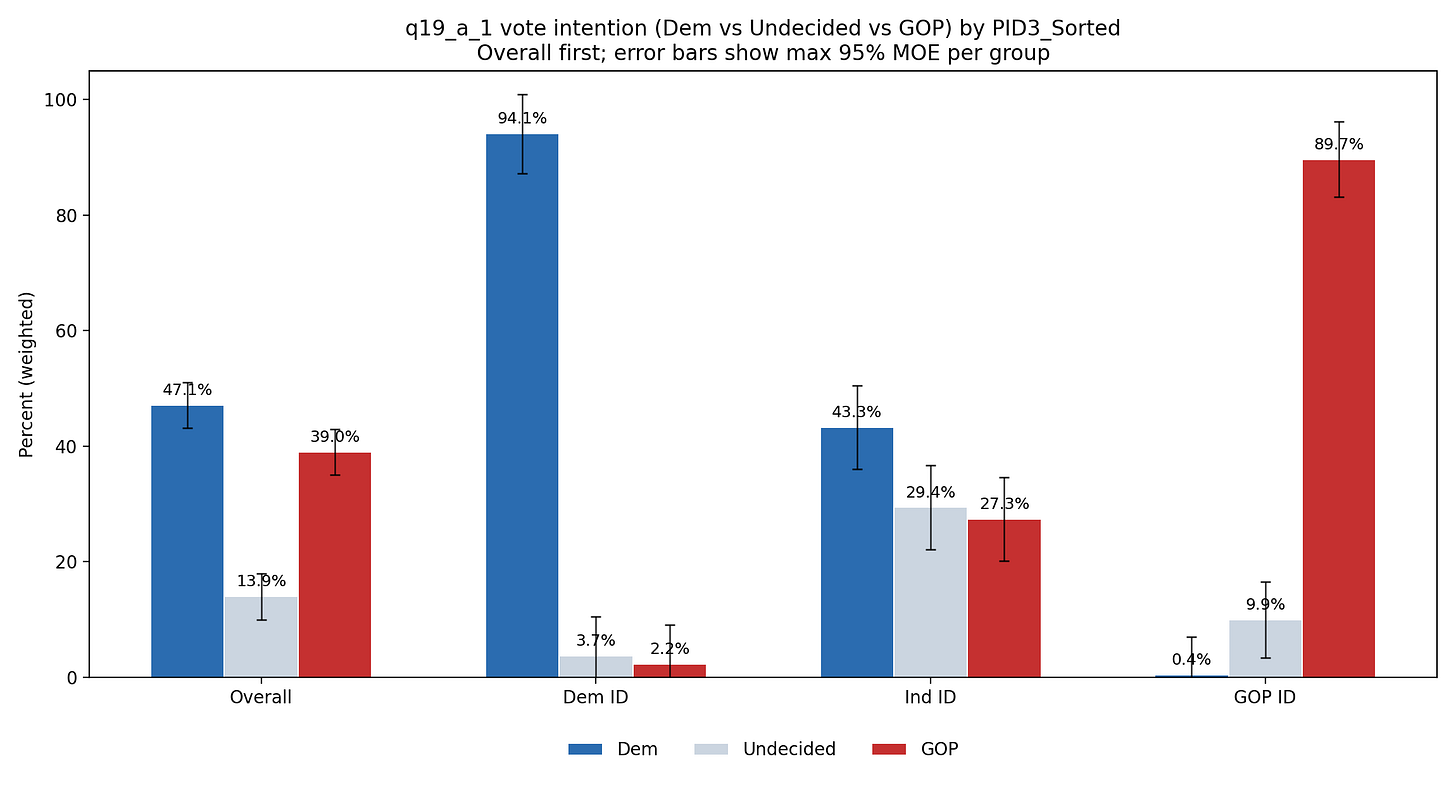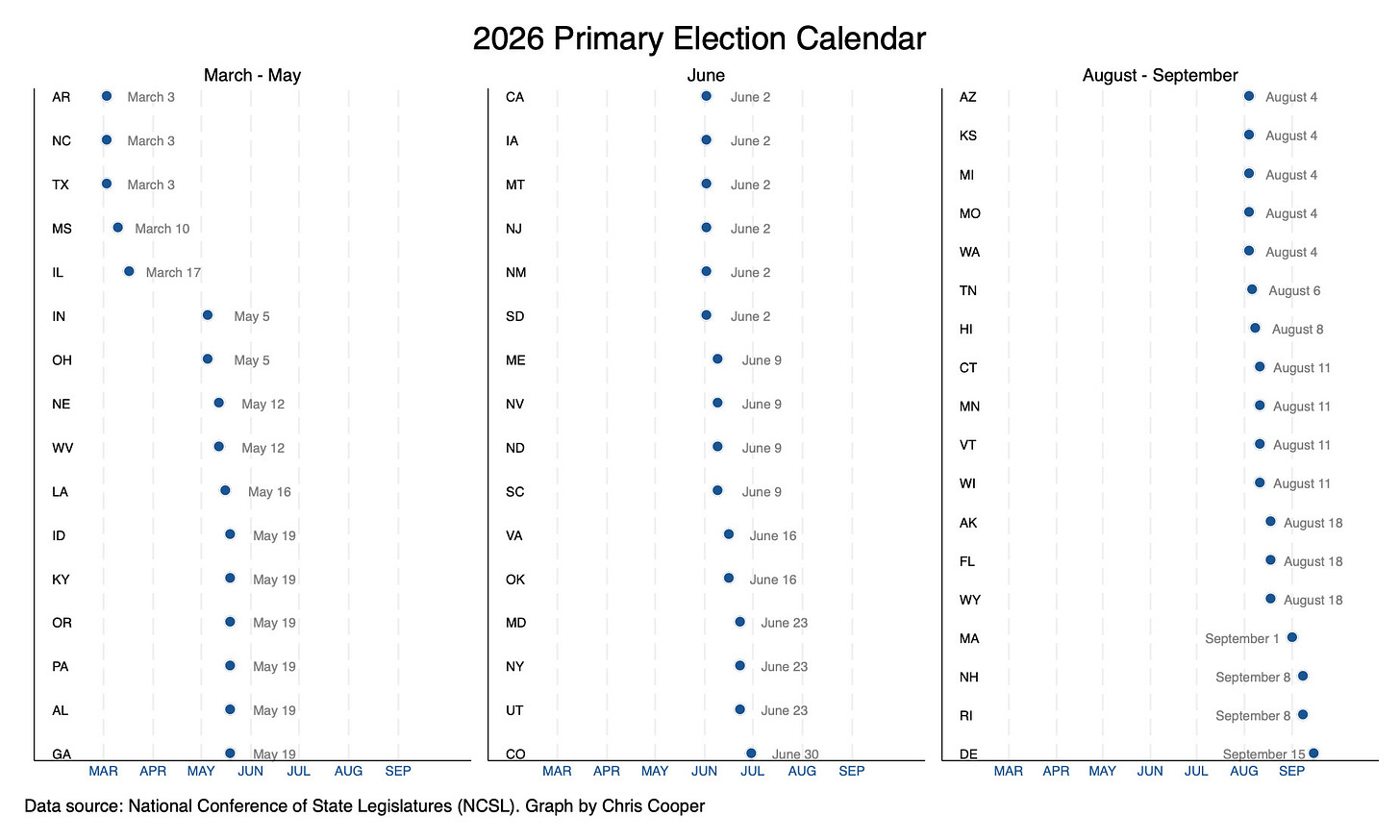by Christopher Cooper
Five states—New Hampshire, Iowa, Nevada, South Carolina, and North Carolina—are battling for the coveted first slot on the 2028 Democratic Party presidential primary calendar, hoping to gain the power and attention that comes with it.
While some of these states, like Iowa and New Hampshire, represent the usual suspects, North Carolina is a newcomer to this battle for first.
North Carolina has a lot of advantages as a first state. It’s a purple, growing and diverse state with a large number of urban, suburban, and rural voters. It’s proximate to the Washington, DC press corps and has multiple media markets. As a bellwether for the country, you could do a lot worse.
While this might appeal to the national Democratic Party, North Carolina should let other states duke it out. The first slot would bring power and attention, but the financial costs and voter confusion aren't worth it.



